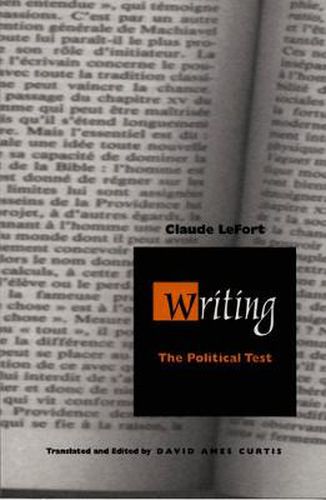Readings Newsletter
Become a Readings Member to make your shopping experience even easier.
Sign in or sign up for free!
You’re not far away from qualifying for FREE standard shipping within Australia
You’ve qualified for FREE standard shipping within Australia
The cart is loading…






In this study, political philosopher Claude Lefort illuminates the process by which writers negotiate difficult paths to free themselves from the ideological and contextual traps that would doom their attempts to articulate a new vision. Lefort examines writers whose works provide special insights into this problem of risk, both literary artists and political philosophers. Among them are Salman Rushdie, Sade, Tocqueville, Machiavelli, Leo Strauss, Orwell, Kant, Robespierre, Guizot and Pierre Clastres. In Tocqueville, for example, Lefort finds that the author’s improvisatory and open-ended expression represents the character of the democratic experience. With the character and fate of the political forms of modernity, democracy and totalitarianism a central theme, Lefort concludes with some reflections on the collapse of the Soviet Union.
$9.00 standard shipping within Australia
FREE standard shipping within Australia for orders over $100.00
Express & International shipping calculated at checkout
In this study, political philosopher Claude Lefort illuminates the process by which writers negotiate difficult paths to free themselves from the ideological and contextual traps that would doom their attempts to articulate a new vision. Lefort examines writers whose works provide special insights into this problem of risk, both literary artists and political philosophers. Among them are Salman Rushdie, Sade, Tocqueville, Machiavelli, Leo Strauss, Orwell, Kant, Robespierre, Guizot and Pierre Clastres. In Tocqueville, for example, Lefort finds that the author’s improvisatory and open-ended expression represents the character of the democratic experience. With the character and fate of the political forms of modernity, democracy and totalitarianism a central theme, Lefort concludes with some reflections on the collapse of the Soviet Union.